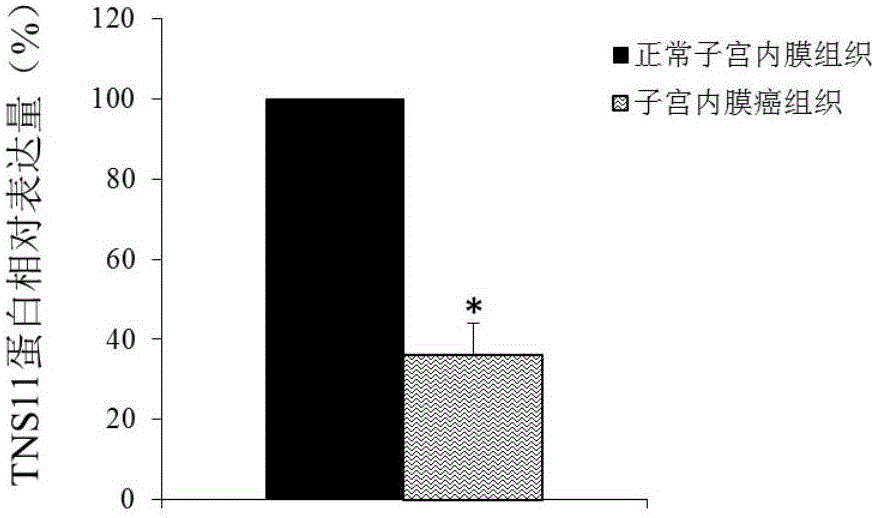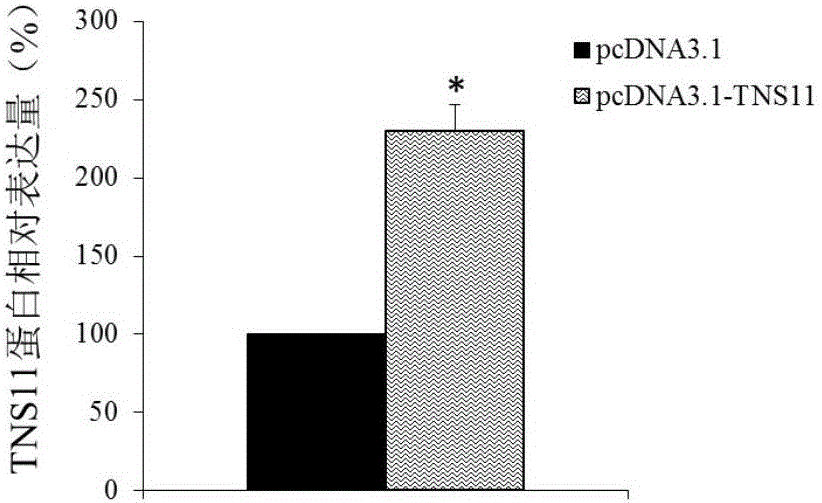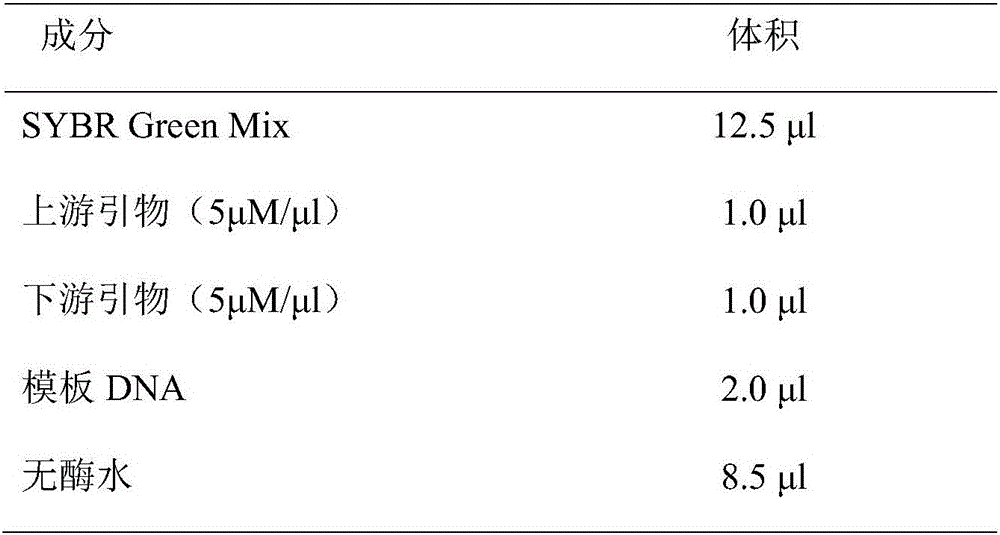Application of TNS11 in preparing product for diagnosing and treating endometrial cancer
A technology for endometrial cancer and products, applied in the field of treatment, prognosis prediction, and cancer diagnosis, which can solve problems such as differences in treatment and outcomes
- Summary
- Abstract
- Description
- Claims
- Application Information
AI Technical Summary
Problems solved by technology
Method used
Image
Examples
Embodiment 1
[0069] Example 1 Gene Chip Screening for Differentially Expressed Genes
[0070] 1. Sample collection:
[0071] Endometrial cancer tissue samples: Patients with endometrial cancer were collected, all of whom underwent surgical treatment, and 10 surgical paraffin specimens were collected. All patients were diagnosed with endometrial cancer by pathological examination. Other enrollment conditions are: all patients have not received any treatment before admission; no other malignant tumors; no other hormone-related diseases; complete clinical data.
[0072] 10 cases of endometrial cancer patients, the average age of onset was 58 years old. The main clinical manifestations of patients are irregular vaginal bleeding, lower abdominal pain, menstrual disorders, vaginal discharge, etc. There are also some patients who have no obvious symptoms and are found in physical examination. The endometrial cancer specimens were sectioned by HE staining, and the histomorphological diagnosis w...
Embodiment 2
[0084] Example 2 Large sample verification screened out differentially expressed genes
[0085] Considering the gene that has not been studied in the prior art on the correlation between this gene and endometrial cancer as a candidate gene, and considering the results of gene sequencing, the TNS11 gene (its expression is down-regulated in endometrial cancer tissue) was selected for verification .
[0086] 1. Sample collection
[0087] According to the method of Example 1, 50 cases of endometrial cancer tissues and 60 cases of normal endometrial tissues were collected.
[0088] 2. Validation at the mRNA level
[0089] 2.1 Extract tissue RNA
[0090] Step is with embodiment 1.
[0091] 2.2 Reverse transcription
[0092] Using a reverse transcription kit, 1 μg of total RNA was reverse-transcribed with reverse transcription buffer to synthesize cDNA. Use 25μl reaction system, take 1μg total RNA for each sample as template RNA, and add the following components in PCR tubes: D...
Embodiment 3
[0115] Example 3 TNS11 Gene Overexpression
[0116] 1. Plasmid construction
[0117] Amplification primers are designed according to the coding sequence of TNS11 gene, and the design of primers is well known to those skilled in the art. Amplify the coding sequence of the full-length TNS11 gene from the cDNA library of adult fetal brain (clontech company, article number: 638831), insert the above cDNA sequence into the eukaryotic cell expression vector pcDNA3.1, and connect the obtained recombinant vector pcDNA3.1 -TNS11 was used in subsequent experiments.
[0118] 2. Culture and transfection of endometrial cancer cells
[0119] 2.1 Cell culture
[0120] The Ishikawa3-H-12 cell line was cultured in RPMI 1640 medium (containing 10% fetal bovine serum, 100 U / ml penicillin, 100 g / ml streptomycin) in 50 ml culture flasks, at 37 °C, 5% CO 2 Continuous cultivation in a humidified incubator.
[0121] 2.2 Cell transfection
[0122] 1. The day before transfection, 0.5-2*10 5 Tumo...
PUM
 Login to View More
Login to View More Abstract
Description
Claims
Application Information
 Login to View More
Login to View More - R&D
- Intellectual Property
- Life Sciences
- Materials
- Tech Scout
- Unparalleled Data Quality
- Higher Quality Content
- 60% Fewer Hallucinations
Browse by: Latest US Patents, China's latest patents, Technical Efficacy Thesaurus, Application Domain, Technology Topic, Popular Technical Reports.
© 2025 PatSnap. All rights reserved.Legal|Privacy policy|Modern Slavery Act Transparency Statement|Sitemap|About US| Contact US: help@patsnap.com



